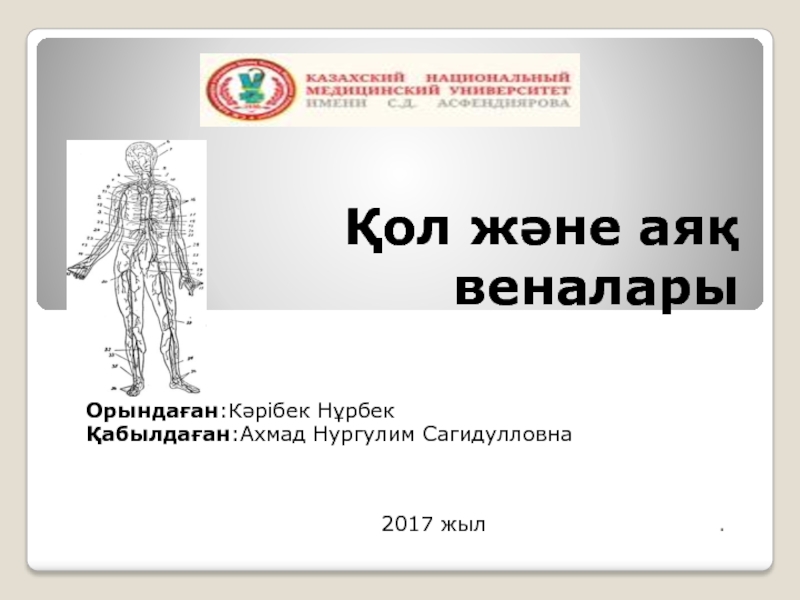- Главная
- Разное
- Дизайн
- Бизнес и предпринимательство
- Аналитика
- Образование
- Развлечения
- Красота и здоровье
- Финансы
- Государство
- Путешествия
- Спорт
- Недвижимость
- Армия
- Графика
- Культурология
- Еда и кулинария
- Лингвистика
- Английский язык
- Астрономия
- Алгебра
- Биология
- География
- Детские презентации
- Информатика
- История
- Литература
- Маркетинг
- Математика
- Медицина
- Менеджмент
- Музыка
- МХК
- Немецкий язык
- ОБЖ
- Обществознание
- Окружающий мир
- Педагогика
- Русский язык
- Технология
- Физика
- Философия
- Химия
- Шаблоны, картинки для презентаций
- Экология
- Экономика
- Юриспруденция
Лекарственные растения презентация
Содержание
Слайд 5Medicinal use
Plantain is found all over the world, and is one
of the most abundant and accessible medicinal herbs.[15] It contains many bioactive compounds, including allantoin, aucubin, ursolic acid, flavonoids, and asperuloside.[16][17] Scientific studies have shown that plantain extract has a wide range of biological effects, including "wound healing activity, anti-inflammatory, analgesic, antioxidant, weak antibiotic, immuno modulating and antiulcerogenic activity".[10]
For millennia, poultices of plantain leaves have been applied to wounds, sores, and stings to promote healing.[18] The active constituents are the anti-microbial compound aucubin, the cell-growth promoter allantoin, a large amount of soothing mucilage, flavonoids, caffeic acid derivatives, and alcohols in the wax on the leaf surface. The root of plantain was also traditionally used to treat wounds, as well as to treat fever and respiratory infections.[19]
Due to its astringent properties, a tea of plantain leaves can be ingested to treat diarrhea or dysentery. Due to the high vitamin and mineral content, plantain tea simultaneously replenishes the nutrients lost as a result of diarrhea.[20] Adding fresh plantain seeds or flower heads to a tea will act as an effective lubricating and bulking laxative and soothe raw, sore throats.[21]
When ingested, the aucubin in plantain leaves leads to increased uric acid excretion from the kidneys, and may be useful in treating gout.[22]
For millennia, poultices of plantain leaves have been applied to wounds, sores, and stings to promote healing.[18] The active constituents are the anti-microbial compound aucubin, the cell-growth promoter allantoin, a large amount of soothing mucilage, flavonoids, caffeic acid derivatives, and alcohols in the wax on the leaf surface. The root of plantain was also traditionally used to treat wounds, as well as to treat fever and respiratory infections.[19]
Due to its astringent properties, a tea of plantain leaves can be ingested to treat diarrhea or dysentery. Due to the high vitamin and mineral content, plantain tea simultaneously replenishes the nutrients lost as a result of diarrhea.[20] Adding fresh plantain seeds or flower heads to a tea will act as an effective lubricating and bulking laxative and soothe raw, sore throats.[21]
When ingested, the aucubin in plantain leaves leads to increased uric acid excretion from the kidneys, and may be useful in treating gout.[22]
Plantago major
Слайд 7Traditional uses
Coltsfoot has been used in herbal medicine[8] and has been
consumed as a food product with some confectionery products, such as Coltsfoot Rock. Tussilago farfara leaves have been used in the traditional Austrian medicine internally (as tea or syrup) or externally (directly applied) for treatment of disorders of the respiratory tract, skin, locomotor system, viral infections, flu, colds, fever, rheumatism and gou
Coltsfoot


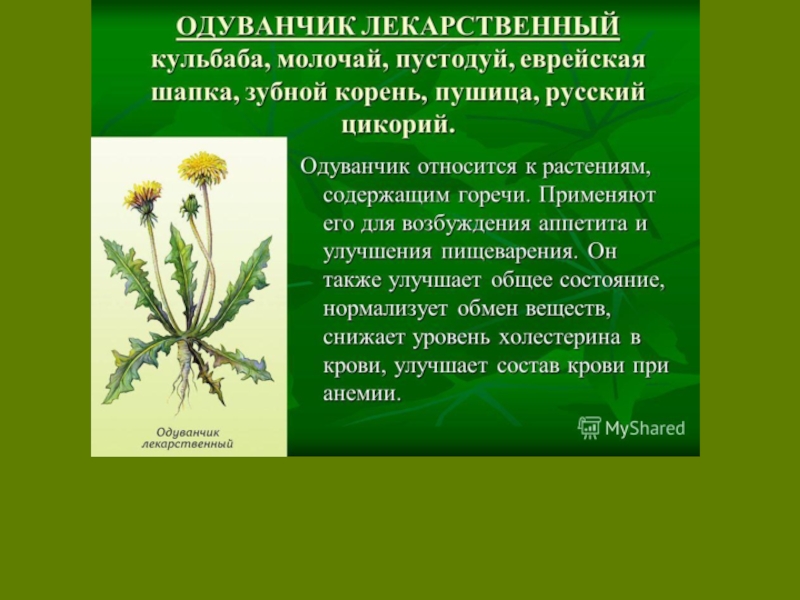
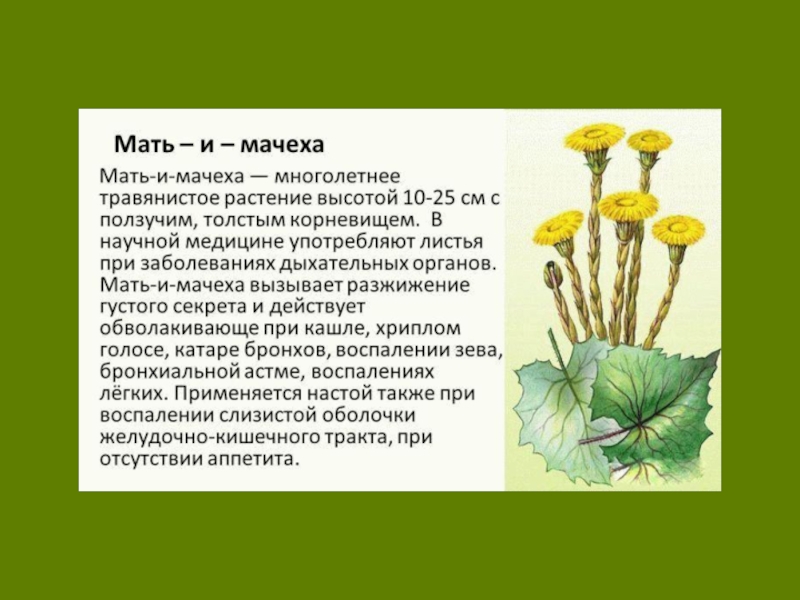
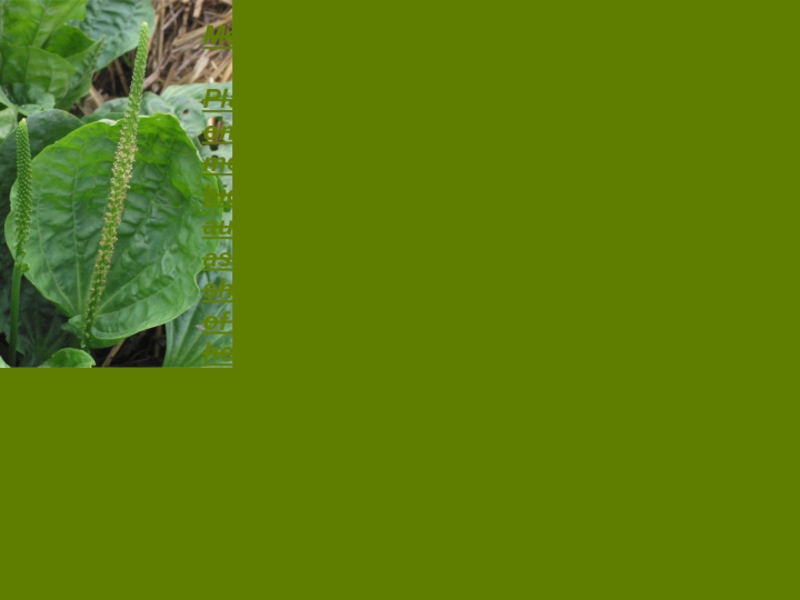
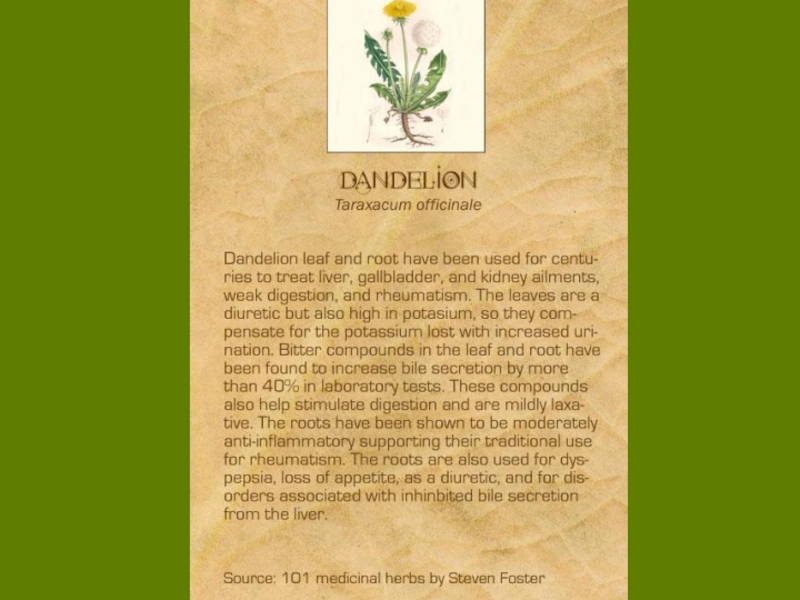
![Traditional usesColtsfoot has been used in herbal medicine[8] and has been consumed as a food](/img/tmb/5/452101/13ca72bb7cc19452be792d54c79bb4cc-800x.jpg)





